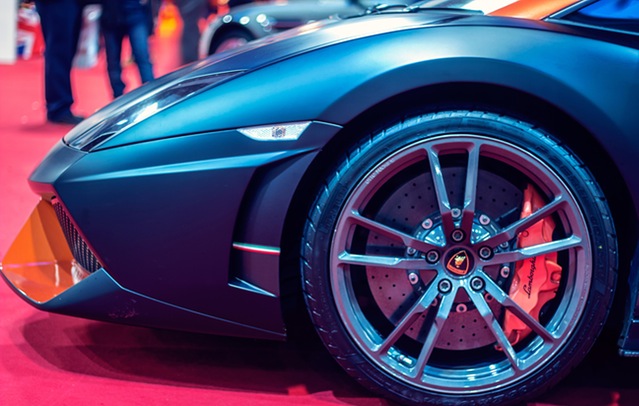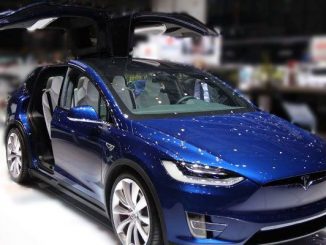
Electric cars need batteries. Batteries need minerals, particularly cobalt and nickel. As the demand for electric vehicles (EVs) is starting to pick up and unavoidably ramp up in the coming years, it’s safe to assume that demand for these essential components will increase as well.
But having a stable mineral supply is proving problematic for electric car manufacturers. Global demand for nickel and cobalt, components in batteries used to power EVs from Tesla (NASDAQ:TSLA) to Toyota, are affecting production. Almost half of the world’s cobalt supply comes from the Democratic Republic of Congo (DRC). Ideally, sourcing should be easy as manufacturers can just hook up with suppliers there. However, DRC’s supply, which hit approximately 123,000-ton in 2016, is proving unstable thus creating the conditions for a possibly seismic effect on the supply chain of battery makers and electric car companies.
As for nickel, there are currently no shortages of suppliers worldwide even as demand increases. However, half of the nickel’s supply is low in quality to use for car batteries. Logically, this fact begs the question: if planet Earth can’t answer the resource-scarcity call, who will?
Industry experts suggest to look into outer space for solutions with a specific focus on asteroids. In fact, large-scale asteroid mining has been mulled as a concept for decades. If successfully implemented, this very complicated sci-fi like undertaking will not only solve mineral supply issues here on Earth, but also propel further the nascent (but burgeoning) space industry.
For this purpose, 12 asteroids have been identified. Referred to as ERO (Easily Retrievable Objects), these space rocks are close enough to be brought into a Lagrangian point—an area where the Earth and moon’s gravities cancel out each other. An ERO can be put into a stable orbit so they can be accessed and mined.
The initial goal of this ambitious plan which has backing from some serious business figures, is the transformation of asteroid water into rocket fuel. Water is in abundance in fragments of asteroids. Once broken into hydrogen and oxygen, both compounds can be utilized as spacecraft fuel. But water is not the only beneficial product out there; indeed, reserves of valuable and useful platinum-group metals, as well as other minerals are simply waiting to be harvested.
In theory, asteroid mining is doable, but as mentioned, it’s not an easy feat. Only to build and launch a series of prospecting asteroid probes could cost tens of millions of dollars. Moreover, according to CalTech, an asteroid-grabbing spacecraft — and we are talking here about sun-revolving rocky worlds that range in size from hundreds of miles to several feet across — could cost around $2.6 billion. Depending on how one views these numbers, this may sound like a lot of money, or maybe not. Based on the space database Asterank, there is significant wealth in space mining. A single, mined asteroid is estimated to be worth $95.8 trillion dollars. This is already equivalent to a year’s total of the entire world’s GDP. Also, according to Peter Diamandis’ asteroid-mining venture Planetary Resources, a 98-foot-long (30-meter) asteroid can hold as much as $15 billion to $25 billion worth of platinum at today’s prices (currently hovering around $930/oz). Compared with the cost of a mission to the asteroid, that’s at least a 5 to 10-fold return on investment. More importantly, Goldman Sachs (NYSE:GS) believes that space mining will get cheaper as we become more technologically advanced and that that efficiency should yield more profits.
Speaking of profits, Elon Musk, who is at the helm of both Tesla (manufacturer of electric cars and rechargeable batteries) and SpaceX (a space transportation company) has gotta be very happy with these projections. In fact, it’s not a far-fetched scenario thinking that SpaceX could start building spacecraft to grab and mine asteroids, bring the mined resources back to Earth, and then sell the minerals to other car manufacturers and battery makers. This will allow Tesla to not only have total control over its supply chain but assume at the same time the role of the supplier. In return, this will create a new revenue stream for Musk and his companies.
Asteroid mining is also positioned to be a win-win situation for planet Earth. While it’s a given that electric cars are cleaner than conventional ones, mineral extraction has taken a toll on our environment. Mining can cancel out the ecological benefits offered by EVs. However, expect less degradation to be inflicted on our environment once the world’s biggest companies start pursuing asteroid mining.
It should be noted that mining minerals from asteroids could create a profitable space-based business which will not only ensure the electric car industry has a steady supply of quality minerals, but also lead toward the exploration of a new space economy. Tons of asteroid material is out there; surely, we won’t have any supply problems if we can mine them. But again here, companies must be willing to invest in developing off-Earth resources as a way of opening up the final frontier.
In 2015 Chris Lewicki, Planetary Resources president said: “Every frontier that we’ve opened up on planet Earth has either been in the pursuit of resources, or we’ve been able to stay in that frontier because of the local resources that were available to us. There’s no reason to think that space will be any different.”
Reference: Space.com
Disclaimer: This page contains affiliate links. If you choose to make a purchase after clicking a link, we may receive a commission at no additional cost to you. Thank you for your support!



Leave a Reply